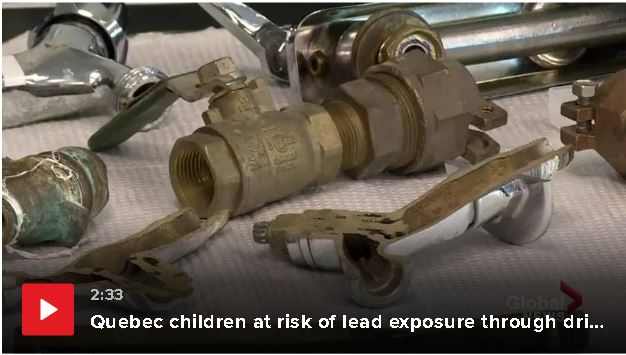She was surprised to find out her home had a public lead service line (LSL) delivering water from the city’s water mains — especially because she was pregnant while living there. “I freaked out,” Cohen says. “I called the city immediately, and I think they actually told me that they weren’t even sure if they could check our pipes, because I think it was the end of their cycle.”
Côte Saint-Luc has some of the worst tap water in Quebec due to lead contamination
The Montreal Island city of Côte Saint-Luc has some of the worst tap water in the province, according to testing results for lead released through access to information legislation. The test results, compiled by Quebec’s Environment Ministry, show that 46 tap water samples from the Montreal Island city of 30,000 people had more than 10 parts per billion (ppb) of lead over a four-year period from 2015 to 2018.
Children in schools and daycares across Canada are exposed to unsafe water
Many children in schools and daycares across Canada are likely being exposed to dangerous levels of lead in their drinking water and don’t know it, because most provinces aren’t requiring comprehensive testing at the taps, according to a collection of provincial studies and internal briefing material. The internal briefing material included memos and other advice prepared for high-ranking government officials in several provinces. These documents were released through freedom of information legislation to Global News as part of a joint year-long investigation into drinking water in partnership with Concordia University’s Institute for Investigative Journalism and other media organizations.
Investigation reveals dangerous lead levels in some Quebec drinking water
Thousands of Quebecers could be getting misleading information about lead contamination in the water coming out of their taps because the province uses a sampling method that underestimates the true level of exposure, Global News has found through surveys and 84 tests of residential drinking water conducted in five cities across the province. The revelations are based on a collaborative investigation by a team of two dozen journalists from Concordia University’s Institute for Investigative Journalism, Global News and Le Devoir. The journalists fanned out across the province to knock on hundreds of doors, taking water samples for testing that revealed lead levels often higher than city workers had told residents.





